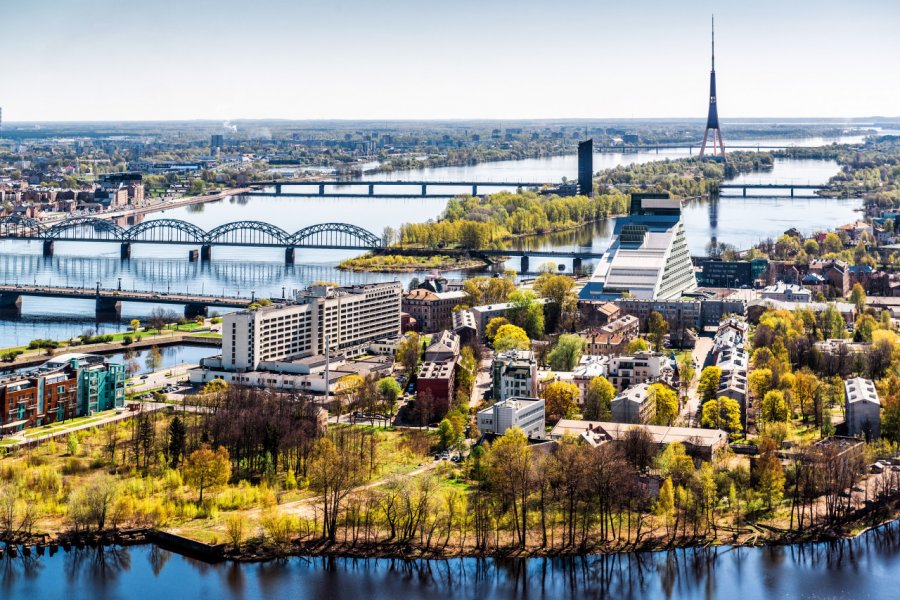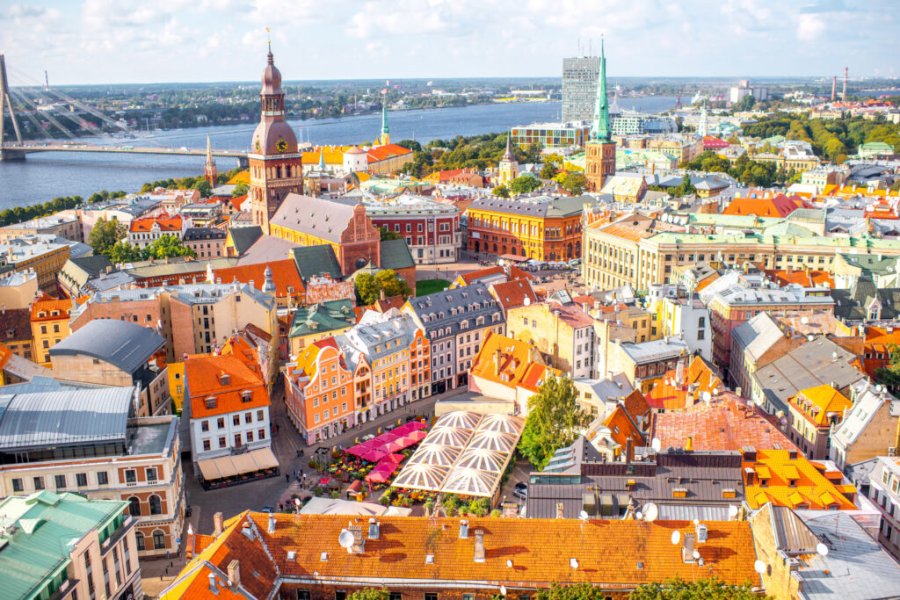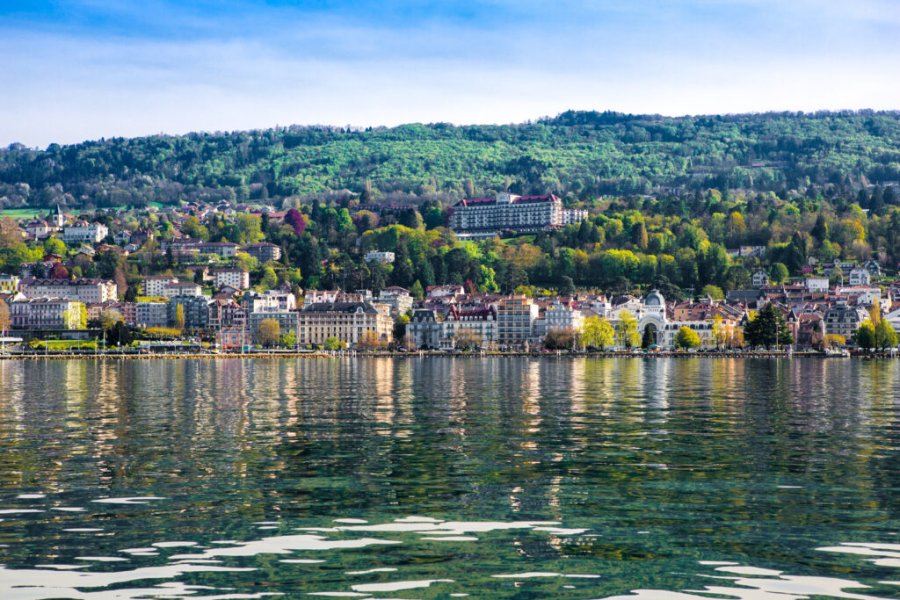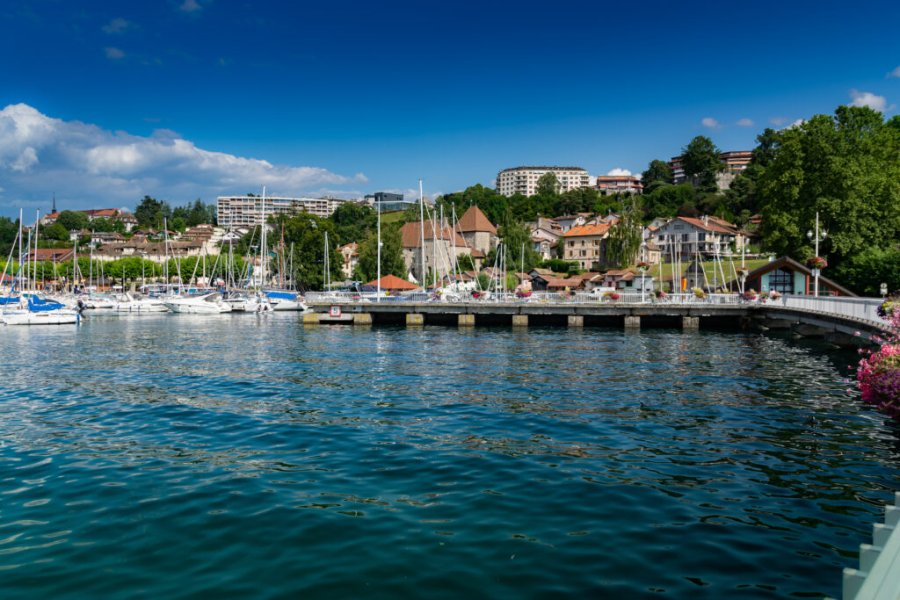Latvia in ten days
Highlights of the trip
During your stay you can enjoy the following highlights: Culture / Heritage, Faune and flora, Discovery, Adventure / Sports & Leisure, Relaxation / Well-being.
Best times to go
The best time(s) to go is/are : Printemps, Eté.
Petit Futé
Where to stay in : Rīga ?
The map of your stay "Latvia in ten days"
Detail of the stay : Latvia in ten days
How to get there - Rīga
Visit Riga's Old Town
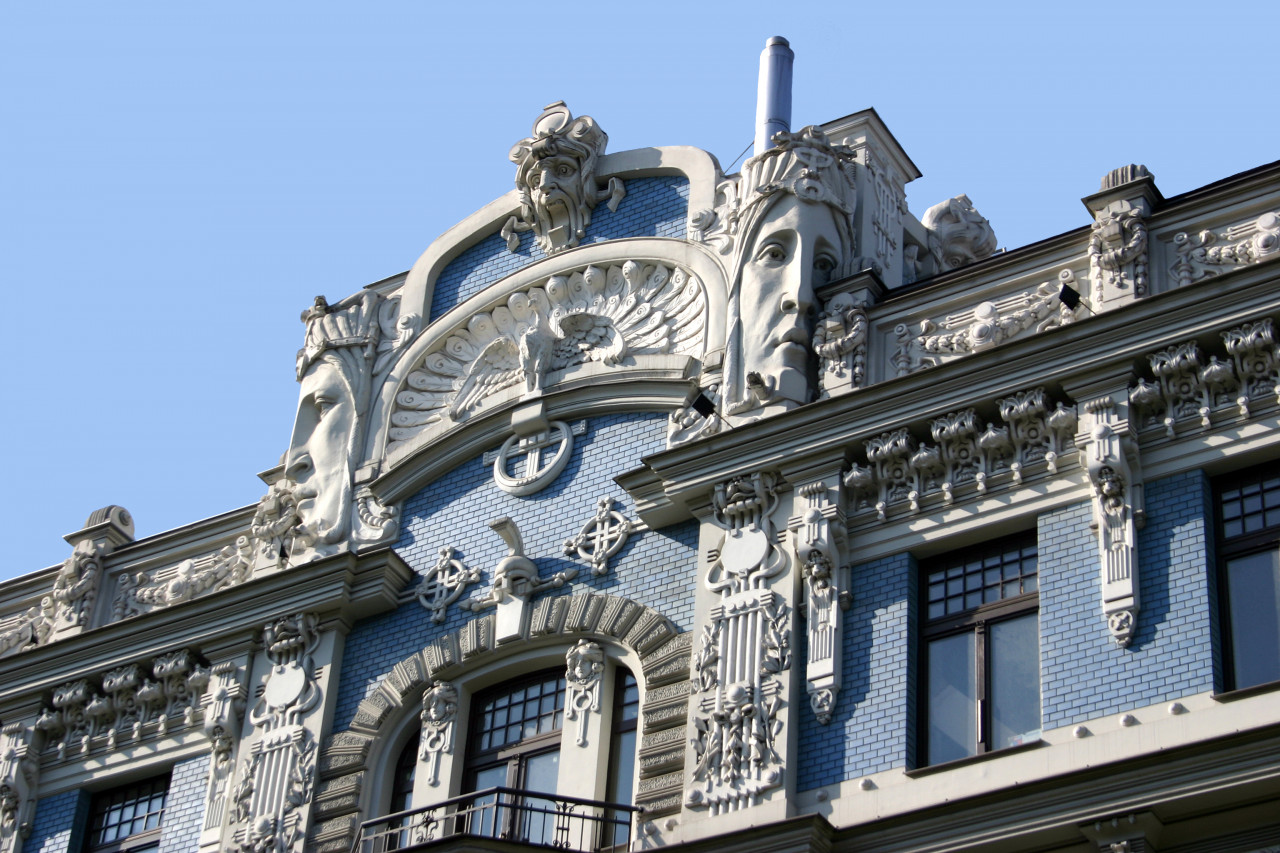
Steps: Rīga
Early in the morning, head for the covered market halls (Europe's largest). These are former zeppelin hangars. Enter the old town through the "camel gate", a reminder of how caravans from Asia brought their goods to Riga. Then climb the bell tower of St. Peter's Church to admire the view over the city. Then take Skarnu Street to Dome Square, the center of the old town, home to the Dome Cathedral and one of Europe's finest organs. Stroll through the maze of streets that make up Riga's historic center and discover the many historic buildings of Old Riga.
New town and Art Nouveau
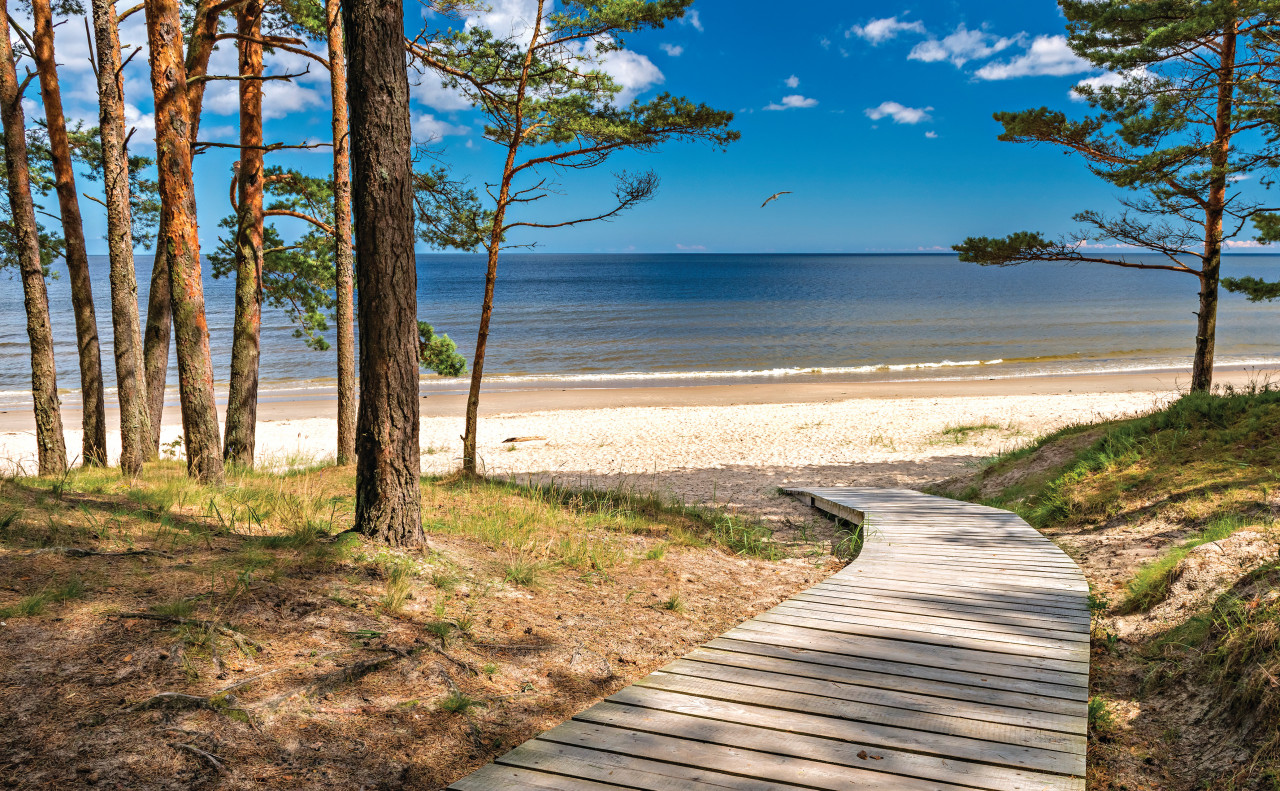
Steps: Rīga
Bordering the old town along Boulevard Basteja is the Opera House. Nearby, on Brivibas Street, the city's main thoroughfare, stands the Freedom Monument. Continuing along Brivibas, you'll see the Hotel Latvija, a 27-storey skyscraper on Elizabetes Street. Riga is known as the European city with the greatest number of Art Nouveau architectural masterpieces. A stroll along Rue Elizabetes (in the opposite direction to the station), where some of these buildings are concentrated, is a must. At the end of the street, on Calle Alberta, you'll find some of the city's finest Art Nouveau buildings. The entire street, with the exception of No. 12, was designed by Eisenstein, father of the famous film director. Return to Hotel Latvija. On the 26th floor, the Skyline Bar offers a panoramic view of the old town. Enjoy a cocktail as the sun sets..
Places of interest : MONUMENT DE LA LIBERTÉ (BRĪVĪBAS PIEMINEKLIS)
Riga-Jurmala
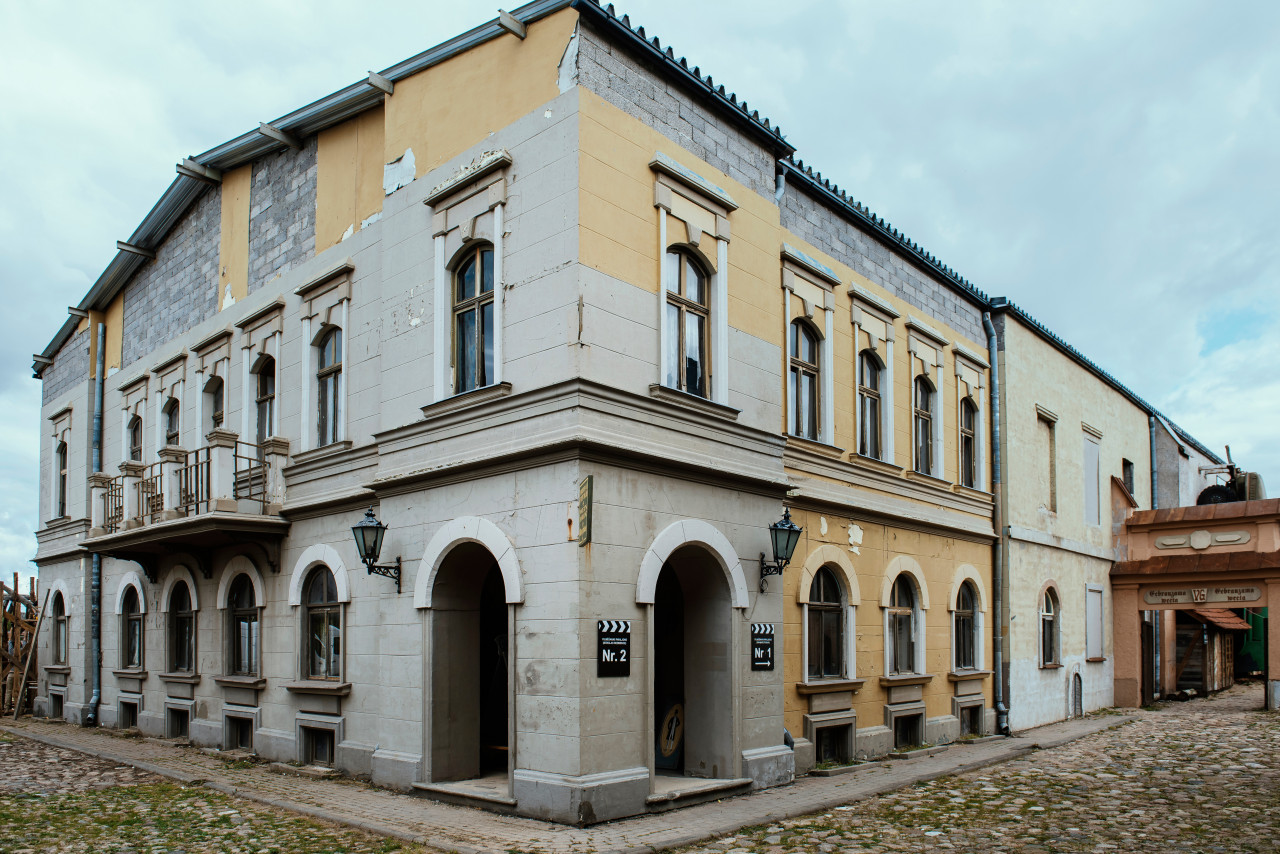
Steps: Jūrmala
Relaxation day in the seaside resort of Jurmala. Its long sandy beach lined with pine trees invites you to take a stroll. A walk that easily extends into the city's alleys, which are full of wooden houses with very varied architectural origins: Russian, Finnish, Swedish or German.
Jurmala-Tukums-Kolka
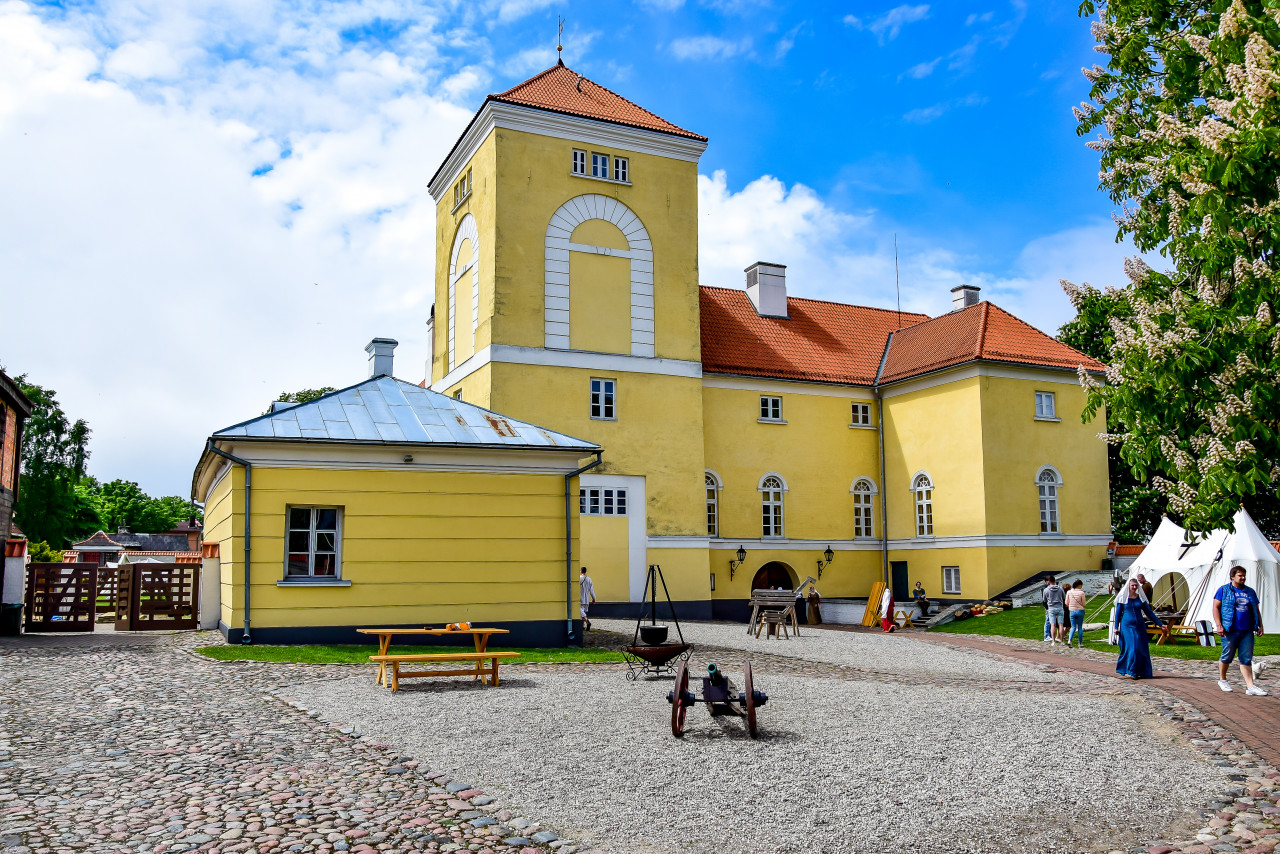
Steps: Tukums
Head west towards the Kurzeme region to reach the town of Tukums. The restored tower of the castle houses a museum dedicated to the Livonian Order and the people of Tukums. If you're fond of beautiful buildings, be sure to visit the neo-Gothic Jaunmoku castle and its superb park. Then head north to the coast and follow it to Kolka. On the way, it would be a shame not to stop at Lake Engure. This lake lies at the heart of a nature reserve, where you can follow the 3.5 km orchid trail, dedicated to 22 species of these rare plants, and contemplate the 122 species of birds that call the reserve home from its observation towers. Continuing northwards, you'll pass through a series of fishing villages. Stop off on the beaches between Roja and Kolka: this is one of the best places to pick up amber washed up by the Baltic (look for translucent, shiny amber flakes).
Kolka-Ventspils
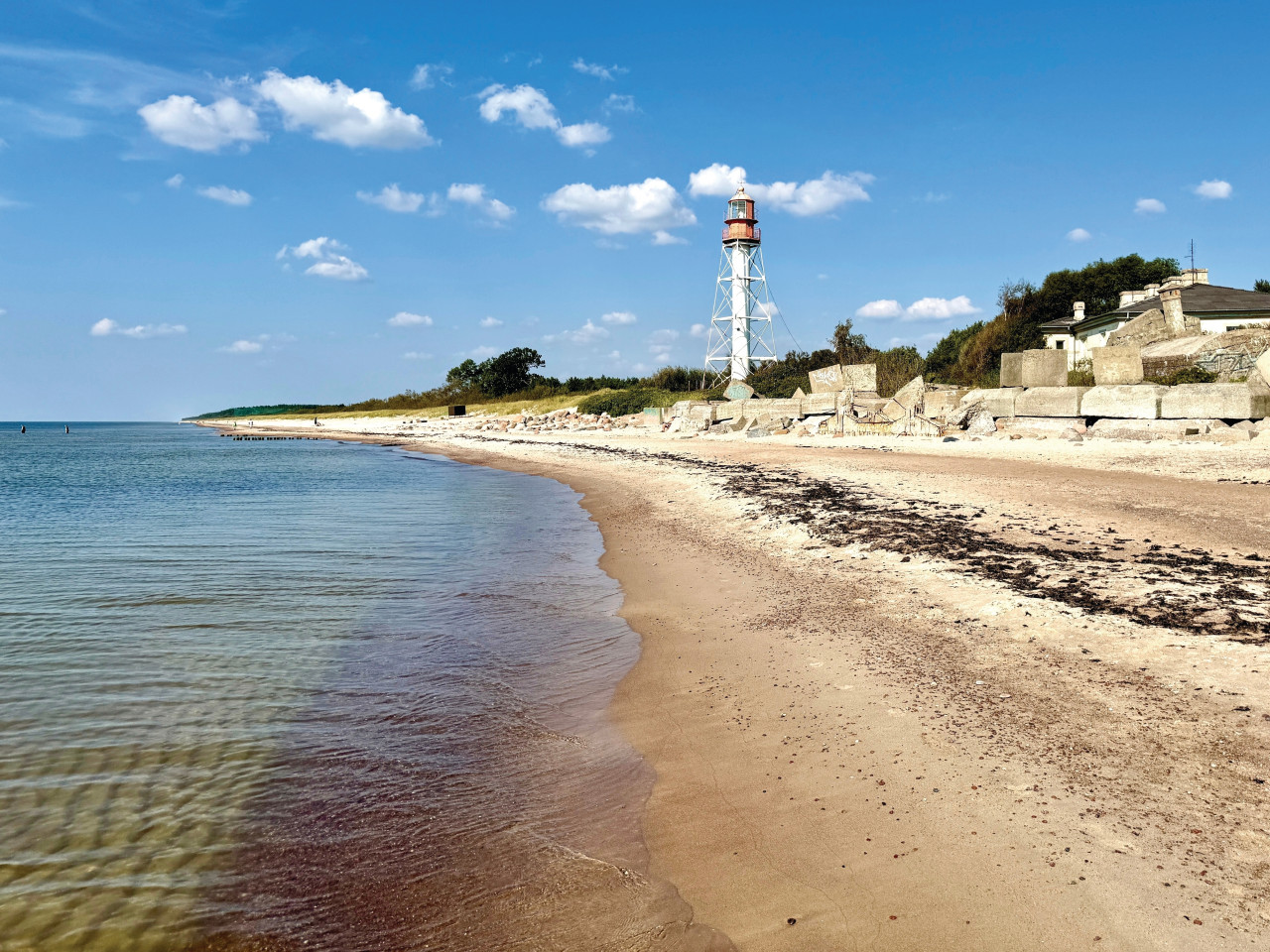
Steps: Ventspils
Located at the tip of the country, Kolka offers a magnificent panorama of wild beaches and wooded dunes. Take advantage of your stroll to observe the phenomenon of crossed waves. Heading west, you'll pass through Sliteres Park, home to deer, reindeer, buzzards and a wide range of bird species. Take a break in the village of Mazirbe and learn about the Livonian people, the original inhabitants of Latvia. Leaving the park, drive along the coast to Ventspils, visiting the fishing villages along the way.
Ventspils-Liepaja

Steps: Liepāja
Ventspils, Riga's rival, capital of the coast. Visit the old town and the Livonian Order Castle. Dine in the former Upis customs warehouse on the quayside of the old port. Stroll through the streets of the old town or the parks along the beach, and it's rare that there isn't a concert or show going on. Extend your itinerary along the coast to Liepaja, the other major city on the west coast. This former forbidden city, once home to a Soviet naval base, is undergoing a revival and its cultural life is on a par with that of Riga. If you're in the mood for adventure and unusual situations, take part in the Karosta prison reality show. You'll experience the life of a prisoner in Soviet times, and you'll know that it's not all rosy... especially when you're a French spy!
Places of interest : CHÂTEAU LIVONIEN PRISON DE KAROSTA
Liepaja-Jelgava-Bauska
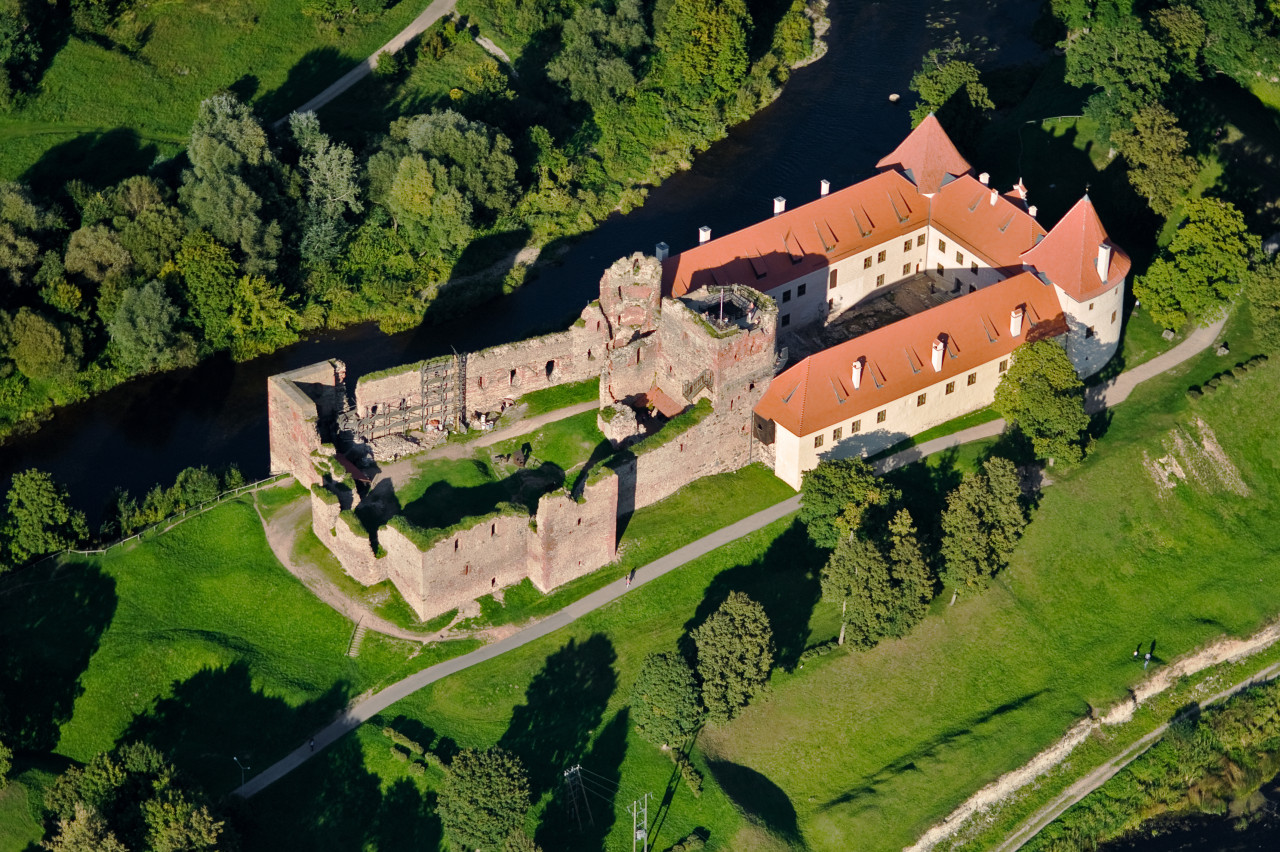
Steps: Jelgava
20 minutes south of Liepaja by road, you can visit the Pape National Park, famous for its buffalo and wild horses. You will then take the A9 road to get inland. On the way, visit the city of Saldus and its green parks. Then turn off towards Jelgava where you can admire its Baroque castle and Orthodox church, both built on the orders of Catherine II according to the plans of the famous Italian architect Rastrelli.
Places of interest : PARC NATUREL PAPE (PAPES DABAS PARKS)
Bauska-Sigulda
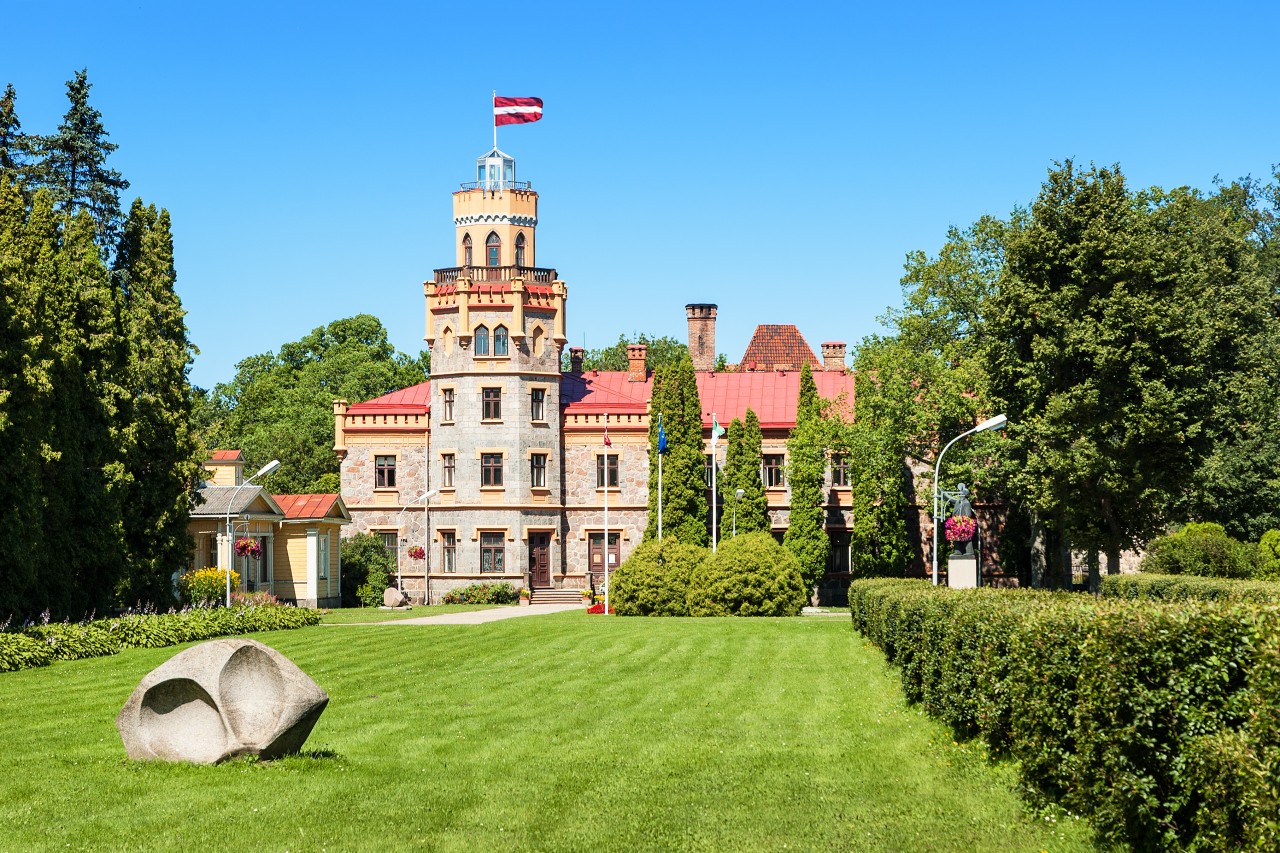
Steps: Sigulda
Bauska is home to a 13th-century castle built by the Livonian Order to defend the nearby Lithuanian border. Continue your tour with a visit to Rundale Palace, nicknamed the "Latvian Versailles", a Baroque and Rococo architectural monument unique in Latvia. If you're a lover of fine buildings, take the opportunity to visit the town of Mezotne and stroll through the English garden of its neoclassical palace, an architectural gem that has been completely renovated and now houses a hotel with majestic rooms at affordable prices. Head north to Sigulda, taking the A7 and A2 roads through the Zemgale region and its farmlands.
Places of interest : PALAIS DE RUNDĀLE (RUNDĀLE PILS)
Sigulda-Cesis
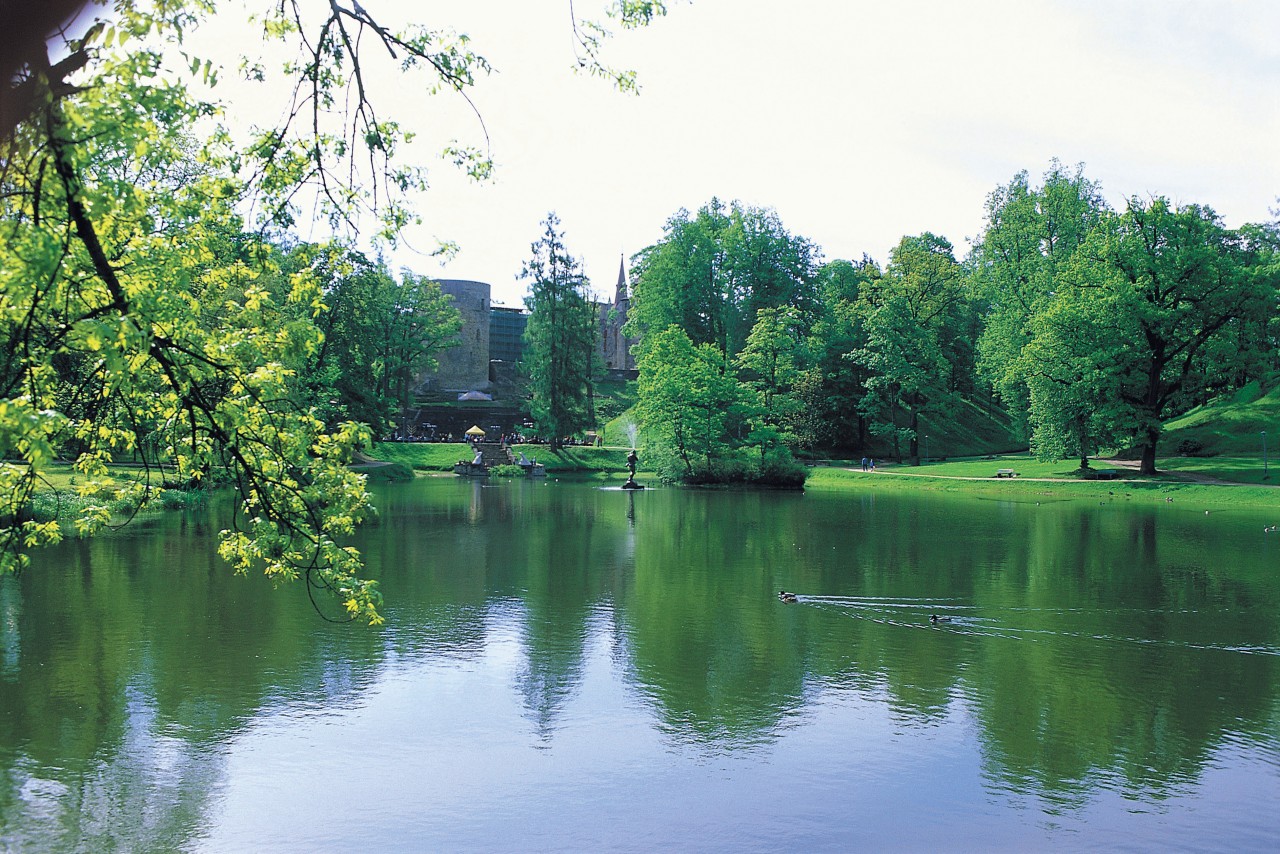
Steps: Līgatne
Sigulda is located in the most hilly part of the Vidzeme region. On the hillside, you'll find the ruins of its castle, as well as the amazing bobsleigh run, which can be enjoyed in both winter and summer. Then set off to discover the Gauja National Park. Its center is in Ligatne, with a wildlife park where the region's animals live in semi-liberty, and around which there are numerous self-catering cottages. You can also visit the village of Ligatne, with its wooden houses and 18th-century paper mill.

